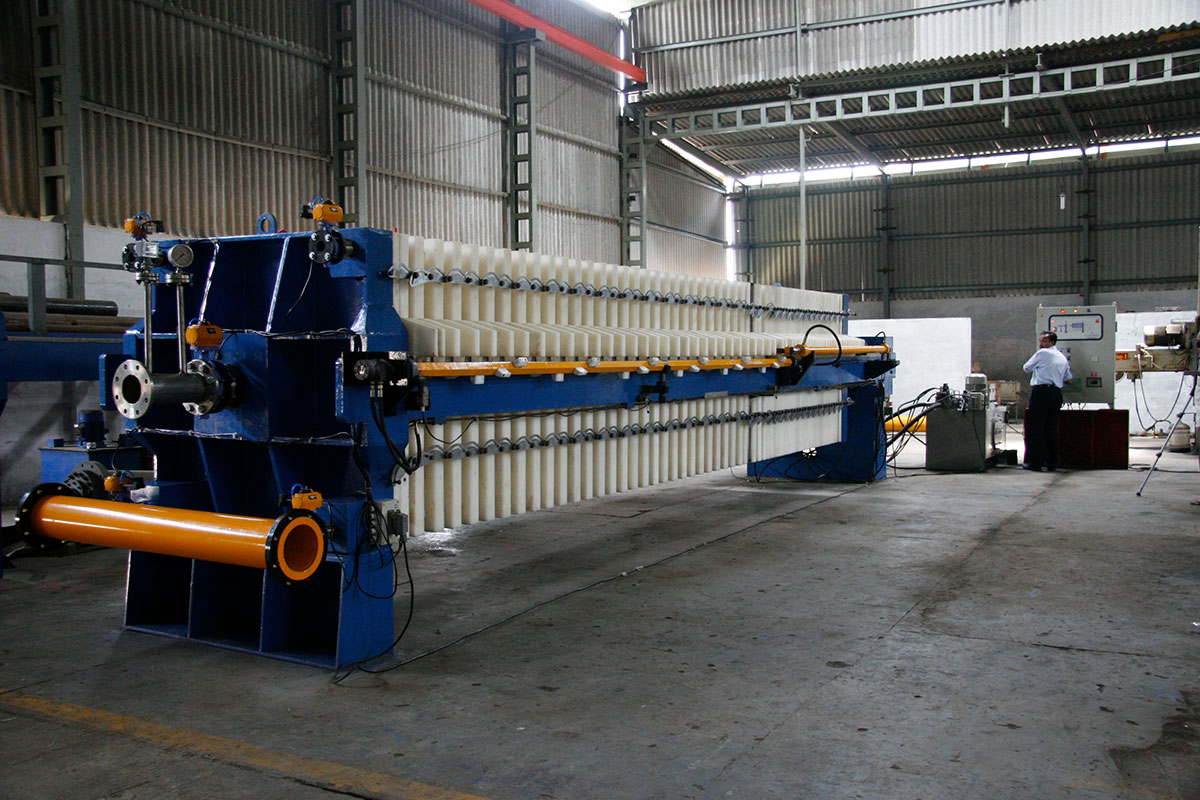A membrane filter press is a specialized type of filter press used in various industrial processes for solid-liquid separation. It is designed to achieve a higher efficiency in dewatering and separation compared to traditional filter presses. Sachin Industries Ltd manufacturing filter press for many process for liquid separation.
The membrane filter press operates by applying pressure to a slurry or suspension of solids and liquids. The press consists of a series of chambers, each containing a filter plate. These filter plates are typically made of a porous material such as polypropylene.
During operation, the slurry is pumped into the filter press, and the solids are retained on the filter plates while the liquid passes through. The membrane filter press is unique in that it has an additional flexible membrane attached to each filter plate. This membrane can be inflated using high-pressure water or air, exerting additional pressure on the filter cake (solids trapped in the chambers) to further squeeze out the liquid.
The membrane inflation helps to reduce the residual moisture content in the filter cake, resulting in a higher level of dewatering and a dryer final product. The added pressure also improves the efficiency of the filtration process, allowing for faster cycle times and increased throughput.
Membrane filter presses are commonly used in industries such as wastewater treatment, mining, chemical manufacturing, and food processing. They are particularly suitable for applications where the slurry contains a high percentage of solids or when a high degree of moisture removal is required.
Overall, membrane filter presses offer several advantages, including improved dewatering efficiency, reduced cycle times, higher solids content in the filtrate, and lower operating costs. However, they can be more complex and costly to operate and maintain compared to conventional filter presses.
Frequent Questions:
• What is membrane filter press? : A membrane press is identical to a standard filter press except that the chambers (area between the plates) have membranes to squeeze out excess water from the slurry. A press with all membrane plates can be costly, however, the mixed pack is a more cost-effective alternative.
• What is the purpose of the filter press? : A filter press is one of the oldest and most trusted pieces of dewatering equipment. It’s used for wastewater treatment across a variety of industries and applications. A filter press works by separating out solids from liquids, removing impurities, and suspended solids from industrial wastewater.
• What are the 4 types of membrane filters? : The four types of membrane filtration are known as reverse osmosis, nanofiltration, ultrafiltration and microfiltration, in order of increasing pore size.
